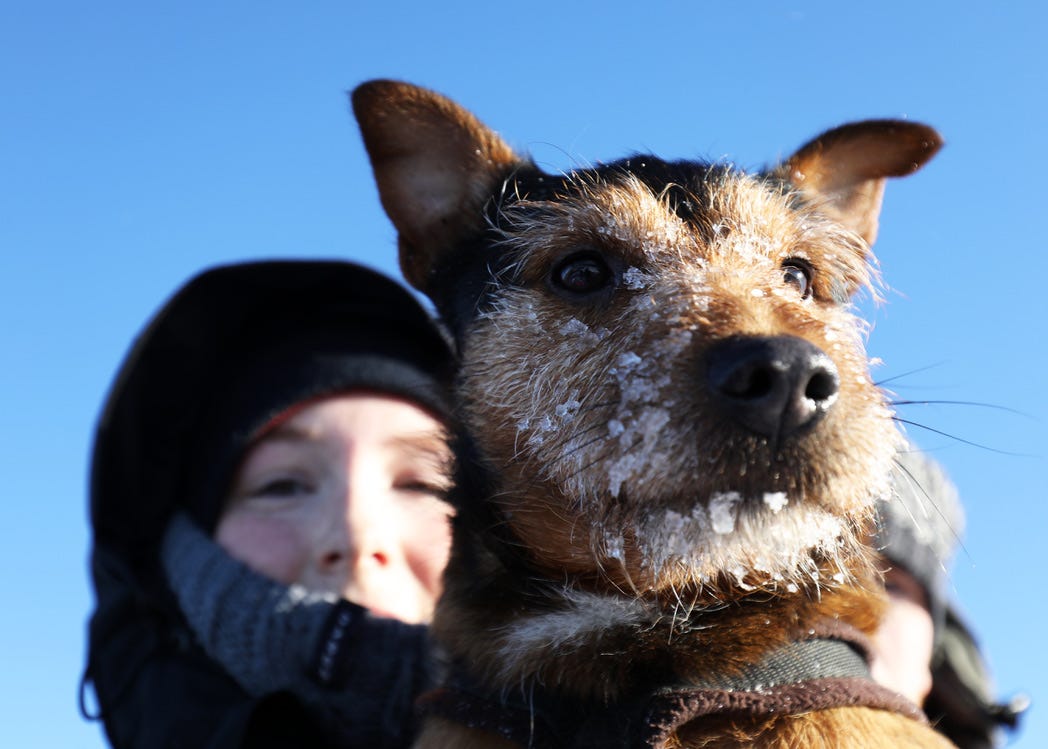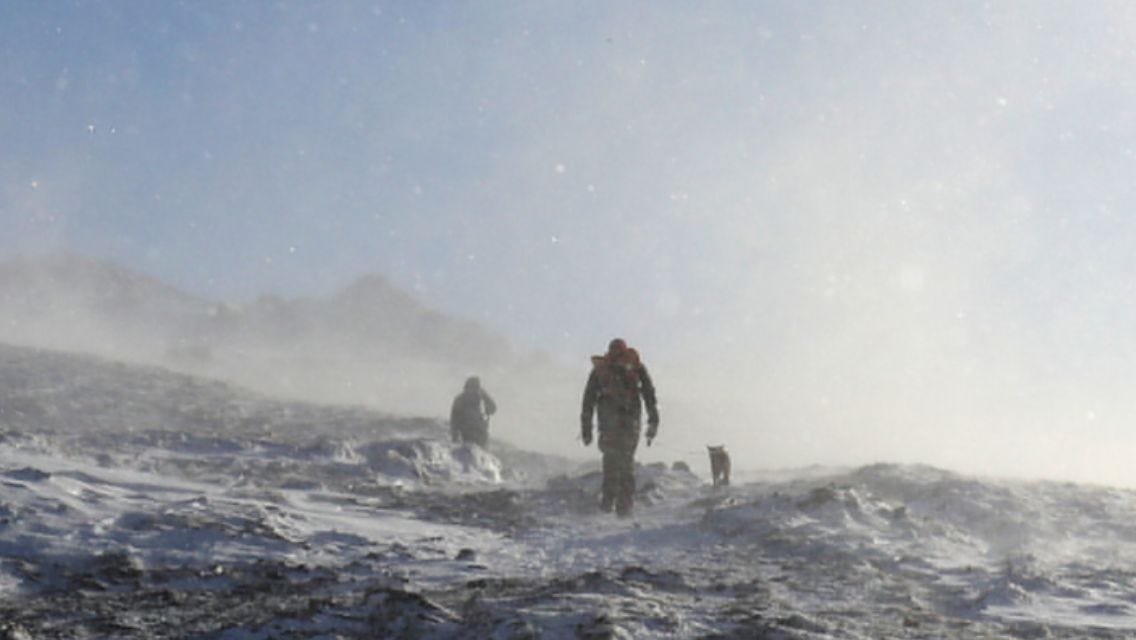Wilf
the death of a hero
Last Saturday I came downstairs ready to do some final checks on my substack post and get it out by the usual time of 11.30 am. Instead I found our dog, Wilf, in distress. He had vomited and was standing by the back door. I let him out and started cleaning up, then I noticed the sheep - there were four of them standing in the drive staring at Wilf. As an old dog with a belly ache he took no interest.
I rang the local farmer and closed some gates to make sure the sheep did not stray on to the road. When the farmer arrived, we herded the lost animals up to his farm and penned them. They were not his, but we knew who owned them. By the time I got back home, Wilf had disappeared. I’d left all the doors open and expected to find him asleep in his bed. After ten minutes of running around calling, I had to phone the farmer again and ask for help. He came with his niece and nephew, but it still took an hour to find the dog. Somehow he had stumbled down a bank and got into a shallow stream where he stood, almost invisible in the shady thicket, his tail down, eyes glazed. Had he known, I wondered later, that his time was over?
A dog's death rarely makes the news. No obituaries get written. Flags are not lowered. There is no public mourning or notices in the press. And yet Wilf had been a part of our family for over fifteen years. He was there in every memory, present on every occasion. In the days that followed we were reminded of all the useful jobs he had performed: all the crumbs hoovered up, the butter wrappers licked clean - he had learned to place one paw on the corner rather than chase it around the kitchen. His dedication to tidiness was endless. Once he tidied up an entire barbecue of sausages and bacon. A pub floor, covered in crisps and peanuts, could be cleaned in seconds. Many landlords became firm friends.
If anyone needed reminding, he could direct them to the warmest spot in the house throughout winter, and the coolest in summer. The presence of mice and rats was infallibly detected, and sometimes dealt with. Flies were chased and captured with an audible snap of the jaws. The presence of a fox within a mile was never missed. He could remember where a tennis ball had been abandoned months earlier, although never mastered any of the commands we attempted to teach him. He was able to recall every human he ever met, even after years apart, but somehow always forgot that the sofa was out of bounds. After three hours of sleeping on a car journey, he could wake up milliseconds before we arrived home. In his youth he could attack larger dogs long before anyone had realised they were dangerous and even got arrested once for dealing severely with a shifty Shih Tzu. At such times his wolf ancestry was close to the surface, but he never forgot that his pack was human and to them he remained utterly loyal. If the pack went roaming, he wanted to go. He loved travel. Many times he cocked his leg in York Railway station, once on the footbridge that crosses the platforms below which made some unfortunate passengers look up, their second mistake.
He could never understand why humans, in contravention of all known hygiene standards, defecate inside their own homes. On this point he was scrupulous, preferring to poo in gateways or on steps.
Snow and ice were his delight. I remember his first exposure to snow on a hike in the Lake District when he bolted in crazed excitement, and leaped off a cliff. We ran to the edge to find him on a ledge below, still giddy with the thrill of it all. He liked water and almost drowned on several occasions: once chasing a stick into a torrent, another time while trying to subdue a pit bull terrier. When his pack went sledging on snowy slopes, his wolf element came bursting out and he would sprint alongside, biting at the sledge as though it was a runaway bison.
The day after he died, we dug a deep hole in the garden and lowered him into it. His ears were still pricked, as though he was listening. That night I thought I heard a nightjar calling, a bird I'd never heard in our area before.
We are learning to put the old butter wrappers in the rubbish bin and sweep up crumbs. There's no longer any need to brush the sofa clean of discarded brown fur.
Back in 2010 I went to Yellowstone National Park in winter. Wolves had been released into the park after an absence of seventy years and were already making their presence felt. Elk and deer populations were falling, but the cottonwood trees were growing and a cascade of other life forms appearing. Some of the wolves had radio collars and one in particular had disappeared. Over the week I was there I kept bumping into a researcher, Rick Macintyre, who was trying to locate that missing animal. It did not have a name. It is not considered appropriate to give wild animals names. The missing wolf was 691.
Rick knew that 691's last known whereabouts were in the Lamar Valley, not far from the log cabins where I was staying. It was bitterly cold, but I'd often see Rick standing on the icy road, holding a radio antennae, turning this way and that, trying to pick up a signal. On my last day at the camp, he found 691. She was lying dead underneath the cabin next to mine. In those last moments of her life, she had inexplicably moved towards the humans.
I often think about that wolf.






😔
So sorry for the loss of your beloved dog.